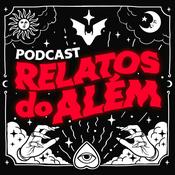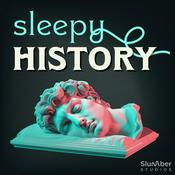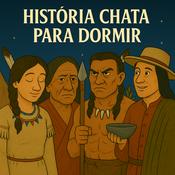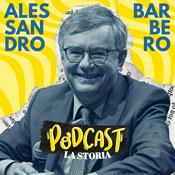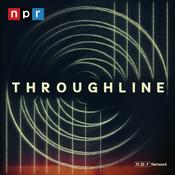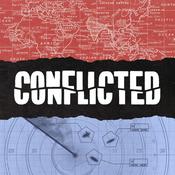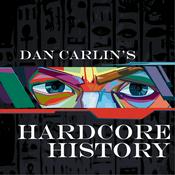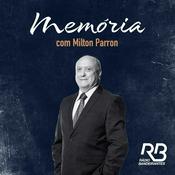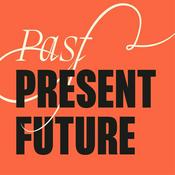359 episódios

Flemmie Kittrell and the Preschool Experiment
30/9/2025 | 52min
Alexis Pedrick joins Katie Hafner to bring you an episode from The Lost Women of Science Initiative, a non-profit educational organization dedicated to telling the forgotten or untold stories of remarkable female scientists and their groundbreaking work through history. The episode, which originally aired in October 2023, is about Flemmie Kittrell, the first Black woman to earn a PhD in Home Economics. In the early 1960s, Flemmie decided to see what would happen if you gave poor kids a boost early in life, in the form of a really great preschool. Every day for two years, parents would get free childcare, and their kids would get comprehensive care for body and mind—with plenty of nutritious food, fun activities, and hugs. What kind of difference would that make? And would it matter later on? Credits Host: Alexis Pedrick Executive Producer: Mariel Carr Producer: Rigoberto Hernandez Associate Producer: Sarah Kaplan Music by Blue Dot Sessions Resource List Flemmie Kittrell audio interviews, Black Women Oral History Project Interviews, 1976–1981, the Harvard Radcliffe Institute's Schlesinger Library Institute Kittrell, Flemmie, "The Negro Family as a Health Agency," The Journal of Negro Education, Vol. 18, No. 3, The Health Status and Health, 1949 Baure, Lauren, "Does Head Start Work?," The Brookings Institution, 2019 Horrocks, Allison, Good Will Ambassador with a Cookbook: Flemmie Kittrell and the International Politics of Home Economics, University of Connecticut, 2016 First report on Howard Preschool Experiment: Prelude to School: An Evaluation of an Inner-City Preschool Program, Children's Bureau (DREW), Washington, D.C. Social and Rehabilitation Service, 1968 Talbot, Margaret, " Did Home Economics Empower Women?," The New Yorker, 2021 Zigler, Edward, and Muenchow, Susan, Head Start: The Inside Story Of America's Most Successful Education Experiment, 1994.

The CRISPR Babies
11/9/2025 | 53min
In 2018 news broke that a Chinese scientist, He Jiankui, had used CRISPR to edit human embryos, and twin girls had been born as a result. The story set off an explosive bioethical controversy. As gene editing expert Kiran Musunuru put it, "He Jiankui's genetic misadventures were the biggest medical story of the century so far." Both scientists and the public had a lot of questions. What was the unmet medical need that justified the gene editing? Was the science ready for prime time? And, if it was, was He Jiankui the right scientist to do it? Seven years later these questions are far from resolved. Credits Host: Alexis Pedrick Executive Producer: Mariel Carr Producer: Rigoberto Hernandez Associate Producer: Sarah Kaplan Audio Engineer: Samia Bouzid Music by Blue Dot Sessions Resource List Baylis, Françoise. Altered Inheritance: CRISPR and the Ethics of Human Genome Editing. Cambridge, MA: Harvard University Press, 2019. CBS News. "Chinese Researcher Claims He Helped Make First Gene-Edited Babies." CBS News, November 26, 2018. CBS News. "Chinese Scientist Behind Gene-Edited Babies Sentenced to 3 Years in Prison." CBS News, December 30, 2019. Cobb, Matthew. As Gods: A Moral History of the Genetic Age. New York: Basic Books, 2022. Greely, Henry T. CRISPR People: The Science and Ethics of Editing Humans. Cambridge, MA: MIT Press, 2021. "He Jiankui presentation and Q&A, International Summit on Human Genome Editing." Youtube Video, November 26, 2018. Marchione, Marilynn. Associated Press. "Chinese researcher claims first gene-edited babies." AP News, November 26, 2018. "Meet Cathy Tie, Bride of 'China's Frankenstein.'" MIT Technology Review, May 23, 2025. Musunuru, Kiran. The CRISPR Generation: The Story of the World's First Gene-Edited Babies. BookBaby, 2019. NBC News. "Chinese Scientist Says He Helped Create First Gene-Edited Babies." NBC News, November 26, 2018. "World's first successful tailor-made gene therapy saves baby born with rare disorder." CBS Mornings. May 16, 2025.

Humans and Monsters: An Interview with Surekha Davies
09/9/2025 | 31min
The fears about genetic engineering were stoked when experiments took off in the 1970s. From lab leaks to disease epidemics to the ability to make "Frankenstein creations," many of those fears are still with us today. We talk to author Surekha Davies about her latest book, why she thinks of monsters as category breakers and why blurring boundaries can be so terrifying for us, but maybe doesn't have to be. Credits Host: Alexis Pedrick Executive Producer: Mariel Carr Producer: Rigoberto Hernandez Associate Producer: Sarah Kaplan Audio Engineer: Samia Bouzid Music by Blue Dot Sessions Resource List Davies, Surekha. Humans: A Monstrous History. University of California Press: 2025.

IVF: An Interview with Robin Marantz
02/9/2025 | 43min
Our producer Rigoberto Hernandez spoke with Robin Marantz, the author of Pandora's Baby: How the First Test Tube Babies Sparked the Reproductive Revolution. She tells us about the history of IVF, from the first known artificial insemination by donor produced in Philadelphia in the 19th century to the scientific race in the 1960s and 1970s that resulted in the first so-called "test-tube baby." Credits Host: Alexis Pedrick Executive Producer: Mariel Carr Producer: Rigoberto Hernandez Associate Producer: Sarah Kaplan Audio Engineer: Samia Bouzid Music by Blue Dot Sessions Resource List Henig, Robin Marantz. Pandora's Baby: How the First Test Tube Babies Sparked the Reproductive Revolution. Cold Spring Harbor Laboratory Press, 2006.

Gene Therapy's Families
26/8/2025 | 42min
When Rebekah and Evan Lockard's daughter, Naomi, was diagnosed with a devastating ultra-rare genetic disease, they didn't know where to turn. Then they found Terry Pirovolakis, an IT professional who had made a gene therapy for his son with the same disease. But the process of getting Naomi treated has been an uphill battle, full of financial and logistical obstacles. The Lockard's story flips the question we've been asking all season on its head. Instead of wondering, "if we could do something, should we," we're now asking, "if we can do something that helps patients, should we do it at any cost?" And this question isn't for scientists or researchers, it's for the rest of us. Credits Host: Alexis Pedrick Executive Producer: Mariel Carr Producer: Rigoberto Hernandez Associate Producer: Sarah Kaplan Audio Engineer: Samia Bouzid Music by Blue Dot Sessions Resource List Mast, Jason. "A dad built a gene therapy for his son. Can he save other kids, too?" STAT News. Elpida Therapeutics. "Battling SPG50 and changing the world." August 17, 2022. The Jackson Laboratory. Brent, Jonathan R. and Deng, Han-Xiang. "Paving a way to treat spastic paraplegia 50." "AAV gene therapy for hereditary spastic paraplegia type 50: a phase 1 trial in a single patient." June 28, 2004. "Colorado family pushes for more funding, awareness around rare neurological disorder." August 12, 2024. CBS News Colorado. Naomi's Corner.
Mais podcasts de História
Podcasts em tendência em História
Sobre Distillations | Science History Institute
Ouça Distillations | Science History Institute, Relatos do Além – Histórias Sobrenaturais Reais e muitos outros podcasts de todo o mundo com o aplicativo o radio.net

Obtenha o aplicativo gratuito radio.net
- Guardar rádios e podcasts favoritos
- Transmissão via Wi-Fi ou Bluetooth
- Carplay & Android Audo compatìvel
- E ainda mais funções
Obtenha o aplicativo gratuito radio.net
- Guardar rádios e podcasts favoritos
- Transmissão via Wi-Fi ou Bluetooth
- Carplay & Android Audo compatìvel
- E ainda mais funções


Distillations | Science History Institute
baixe o aplicativo,
ouça.
